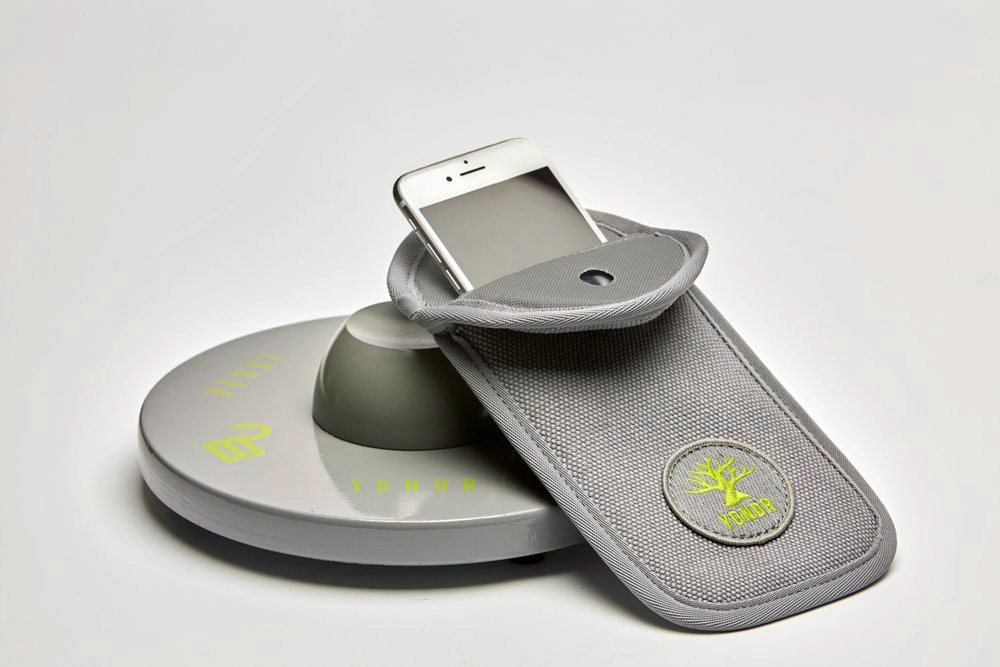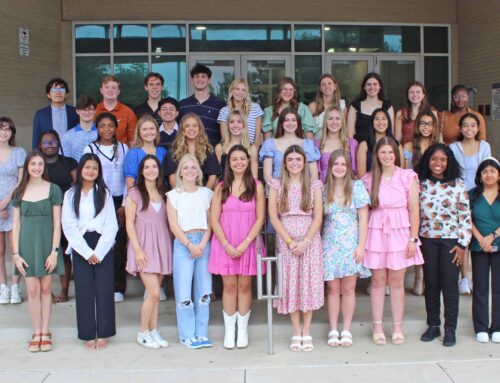Richardson ISD Interim Superintendent Tabitha Branum will propose new restrictions for student cellphone use at a school board meeting Thursday. The new rules would require students in grades 7-12 to keep their phones turned off and locked up throughout the school day.
“In RISD, our teachers, principals, and other employees who work directly with our older students have seen the ongoing distraction and lack of engagement among many students during instructional time due to phones,” Branum explained in a video released via email to parents Saturday. “We’ve also experienced a wide variety of disciplinary issues that are the product of student smartphone use during the school day, including student altercations, cyberbullying, prohibited activity, photos and videos in violation of other student’s privacy rights, and social media posts or texts that result in safety concerns on campuses.”
“Our teachers, principals, and school staff have been asking for the district to take action, as classroom distraction from phone use is a daily occurrence,” continued Branum. “Student cellphone use was the number one problem RISD secondary teachers cited in our end-of-year teacher survey, and was also cited as problematic both in the RISD parent survey and in the community feedback provided during the recent superintendent search process.”
Branum was recently named by trustees as the lone finalist to become RISD’s official superintendent.
Branum’s proposed solution involves the use of magnet-locked bags from a company called Yondr. Students would slip their turned-off phones into Yondr pouches as they arrive at school each morning. When school is dismissed, they’d touch the bag to one of numerous unlocking stations to release their phone.
Branum is expected to share details of the proposed contract with Yondr in her Thursday briefing with RISD trustees. According to published reports by Edtech and NPR, Yondr leases the pouches to school districts for between $12 and $30 each, and schools distribute them at no cost to students. RISD trustees would need to approve the contract because it would exceed $50,000.
Yondr’s locking pouch technology has been used since 2014 in more than 1,000 schools around the world, where administrators report a 65% improvement in academic performance, a 74% improvement in student behavior and an 83% improvement in student engagement in the classroom. Branum says the district’s secondary principals studied ideas over the summer and helped to select the pouches as a way to keep students engaged in classroom learning.
Education officials aren’t the only ones singing the praises of Yondr. Alicia Keys, Guns and Roses, Dave Chappelle and Chris Rock are among the artists who’ve required concert goers to place cellphones in pouches before their shows begin. Promoters want to stop illegal recordings from circulating on the internet, and artists say they simply want to enhance the concert experience – for the audience and themselves.
“Could you stop filming me with that video camera,” Adele once asked a woman in the crowd at her show. “Because I’m really here in real life. You can enjoy it in real life rather than through your camera.”
Branum invited parents to comment on the issue via the “Let’s Talk” portal on the district’s website, and it’s clear she’s already hearing feedback. One Facebook post opposing the pouches garnered almost 500 comments in the first 18 hours.
Some parents say the convenience of communicating with their students during the school day outweighs the undisputed negative effects of kids distracted by phones. Others say the Uvalde school shooting demonstrates that any child could need to reach emergency personnel by phone at any time to save themselves or someone else. A YouTube video is now circulating with tips to disable the magnet on the Yondr pouch, and students have reportedly used cheap “burner phones” to thwart the process at other schools.
In her video message, Branum said she and her principals considered these and other issues but are determined to help students focus on lessons in the classroom.
“While a student cell phone is neither required for school nor a right for students to possess at school, we understand that many parents provide their child with a phone for safety and convenience purposes, and we understand students often use mobile phones right before school and immediately upon dismissal to communicate with parents about rides and schedules. Cellphones are an important tool for all of us. But during the school day, our students need to be engaged in teaching and learning.
“We know this new emphasis on enforcement may not be popular with every student. For many of our students, their phone is a part of their everyday life – and it still can be, just not at school during the school day. Our secondary principals understand that some students will have concerns, but we are steadfast that this is the right decision to support the growth of our students – both academically and as individuals who are part of a school community.
“Simply put, as the adults, we must sometimes make decisions that may be unpopular with students because we believe it is the right thing to do.”
Classes begin Aug. 16.






